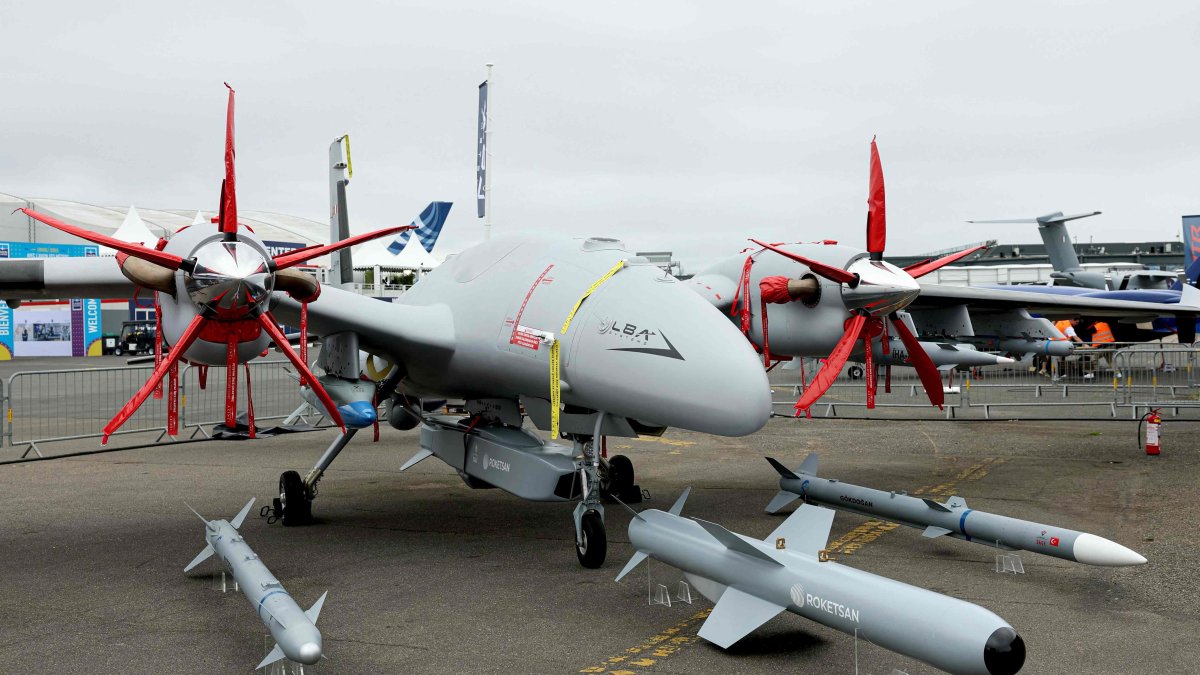Türkiye must develop a multifaceted strategy to be prepared in case another war flares up between Israel and Iran, a new report from the National Intelligence Academy (MIA) has warned.
In its report, titled “The 12-Day War and Lessons for Türkiye,” the MIA analyzed the June 13-24, 2025 conflict between Israel and Iran, detailing its military, intelligence, political and technological dimensions while outlining strategic takeaways for Ankara.
The short but intense war, which quickly shook regional balances, was assessed from a broad perspective, from air superiority to cyberattacks, and from manipulation of public opinion to implications for the defense industry. The study also examined the likely trajectory of the Iran-Israel rivalry and set out measures Türkiye should adopt in preparation for potential scenarios.
The report underscored that Türkiye’s defense industry has become a priority target for foreign intelligence services and urged the adoption of preventive security policies to safeguard sector actors. It stressed that critical personnel training, early warning systems and digital protection measures will be decisive in future wars.
According to the MIA, the 12-day war was a striking example of new-generation warfare capable of producing profound effects in a short span. The conflict began with Israeli surprise airstrikes and assassination operations, culminating in U.S. strikes on Iranian nuclear facilities.
The report highlighted the decisive role of modern warfare technologies, especially airborne elements, and emphasized the growing importance of cyberwarfare, electronic attacks and digital manipulation of public opinion.
Israel’s long-standing intelligence and operational networks inside Iran were described as a key factor in its military successes, illustrating how modern intelligence structures can directly shape the course of war.
Lessons for Türkiye
The report noted that Iran tried to offset Israel’s advantages through advanced hypersonic missile capabilities but achieved limited results against Israel’s layered air defense systems.
Even so, Israel’s difficulty in intercepting these missiles despite its technological edge demonstrated, the report said, the need for Türkiye to prepare for similar threats by modernizing its air defenses and boosting anti-missile capabilities.
The war was also fought in the digital sphere. Both sides carried out cyberattacks to damage infrastructure and sway public opinion. Iran’s blocking of platforms such as WhatsApp revealed the psychological dimensions of such conflicts, reinforcing the importance for Türkiye of digital security, critical infrastructure protection and domestic software use.
Civil defense capacity
Civilian casualties in Iran, particularly in Tehran, were attributed to inadequate early warning systems and shelter infrastructure. In contrast, Israel avoided similar losses thanks to advanced civil defense systems.
The MIA stressed that Türkiye should develop comparable capabilities for its major cities, warning that civil defense capacity will be vital in any future conflict.
The report reaffirmed the importance of integrating manned and unmanned aerial systems in Türkiye’s air force and called for domestic solutions for military use of civilian technologies. It also stressed the need to boost mass production capacity and adopt long-term, multifaceted defense planning.
If diplomacy in Iran fails, the report cautioned, regional instability will be unavoidable, potentially triggering mass migration toward Türkiye, disrupting energy supplies and creating border security risks.
The conclusion was that Türkiye must be ready for these eventualities, militarily, digitally and strategically.

The Daily Sabah Newsletter
Keep up to date with what’s happening in Turkey,
it’s region and the world.
SIGN ME UP
You can unsubscribe at any time. By signing up you are agreeing to our Terms of Use and Privacy Policy.
This site is protected by reCAPTCHA and the Google Privacy Policy and Terms of Service apply.
